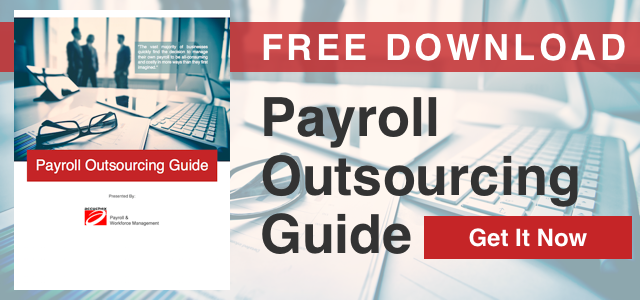 California Labor Laws: One of the pressing issues facing many California employers is how to accurately and safely classify a worker as an independent contractor as opposed to an employee. While it may seem quite apparent on the face of it, the distinction is not nearly as clear as some think.
California Labor Laws: One of the pressing issues facing many California employers is how to accurately and safely classify a worker as an independent contractor as opposed to an employee. While it may seem quite apparent on the face of it, the distinction is not nearly as clear as some think.
California Labor Laws - Independent Contractor or Employee? Inquiring Minds Need to Know.
Not all workers are employees and many businesses in California make use of volunteers or contractors. For an employer, this arrangement can be advantageous since the employer does not have to pay payroll taxes, the minimum wage or overtime, comply with other wage and hour law requirements such as providing meal periods and rest breaks, or reimburse these workers for business expenses incurred in performing their jobs.
In addition, employers do not have to cover independent contractors under workers’ compensation insurance, and they are not liable for payments under unemployment insurance, disability insurance, or social security.
While some employers have deliberately abused this arrangement and have even knowingly mis-classified actual employees as "independent contractors" to avoid these payroll costs and obligations, most firms simply try to do the right thing.
However, the "right thing" is somewhat ambiguous when it comes to independent contractors.
Who Decides What Defines Independent Contractor?
Whether a worker is an employee or an independent contractor generally depends on the application of the factors contained in the California common law of employment and statutory provisions of the California Unemployment Insurance Code - in short referred to as California Labor Laws.
The two state agencies primarily associated with determining the status of independent contractor versus employee, are the Employment Development Department (EDD) - which deals with employment-related taxes - and the Division of Labor Standards Enforcement (DLSE), the agency that determines whether California wage, hour and workers’ compensation insurance laws apply.
Other agencies, such as the Franchise Tax Board (FTB), Division of Workers’ Compensation (DWC), and the Contractors State Licensing Board (CSLB), also have regulations or requirements that apply to independent contractors.
Unsurprisingly perhaps, because different laws may be involved in a particular situation such as a termination of employment, it is possible that the same individual may be considered an employee for purposes of one law and an independent contractor under another law. Therefore, each working relationship should be thoroughly researched and analyzed before classification is established.
What Does Not Determine Independent Contractor Status
According to the Labor Commissioner's Office, many actions by employers that might be construed as establishing an independent contractor relationship do not apply. For example:
The fact that a person who provides services is paid as an independent contractor, that is, without payroll deductions and with income reported by an IRS form 1099 rather than a W-2, is of no significance whatsoever in determining employment status.
California Labor Laws / wage and hour laws (e.g., minimum wage, overtime, meal periods and rest breaks, etc.), and anti-discrimination and retaliation laws protect employees, but not independent contractors. Additionally, employees can go to state agencies such as DLSE to seek enforcement of the law, whereas independent contractors must go to court to settle their disputes or enforce other rights under their contracts.
The existence of a written agreement purporting to establish an independent contractor relationship is not determinative. The Labor Commissioner and courts will look behind any such agreement in order to examine the facts that characterize the parties’ actual relationship and make their determination as to employment status based upon their analysis of such facts and application of the appropriate law.
It is important that each working relationship be thoroughly researched and analyzed before classifying an individual as an independent contractor and not an employee. You should understand that the DLSE presumes that the worker is an employee (Labor Code Section 3357).
Independent Contractors and the "Economic Realities" Test
There is no set definition of the term "independent contractor." Because of this, the status of a worker that may, indeed, be an independent contractor is determined by the interpretations of the courts and enforcement agencies.
The actual determination of whether a worker is an employee or independent contractor depends upon a number of factors, all of which must be considered, and none of which is a determining factor by itself. Consequently, it is important to review the facts of each service relationship.
This is done by the state government by applying the "multi-factor" or the "economic realities" test adopted by the California Supreme Court in the case of S. G. Borello & Sons, Inc. v Dept. of Industrial Relations (1989) 48 Cal.3d 341. In the economic realities test, the most significant factor is whether the employer or principal has "control or the right to control the worker both as to the work done and the manner and means in which it is performed."
Additional factors that may be considered depending on the issue involved are:
-
Whether the person performing services is engaged in an occupation or business distinct from that of the principal;
-
Whether or not the work is a part of the regular business of the principal or alleged employer;
-
Whether the principal or the worker supplies the instrumentalities, tools, and the place for the person doing the work;
-
The alleged employee’s investment in the equipment or materials required by his or her task or his or her employment of helpers;
-
Whether the service rendered requires a special skill;
-
The kind of occupation, with reference to whether, in the locality, the work is usually done under the direction of the principal or by a specialist without supervision;
-
The alleged employee’s opportunity for profit or loss depending on his or her managerial skill;
-
The length of time for which the services are to be performed;
-
The degree of permanence of the working relationship;
-
The method of payment, whether by time or by the job; and
-
Whether or not the parties believe they are creating an employer-employee relationship may have some bearing on the question, but is not determinative since this is a question of law based on objective tests.
Never Rush Into Classifying a Worker as an Independent Contractor
Even with these numerous factors to consider there may be more to take into account:
Even where there is an absence of control over work details, an employer-employee relationship will be found if (1) the principal retains pervasive control over the operation as a whole, (2) the worker’s duties are an integral part of the operation, and (3) the nature of the work makes detailed control unnecessary. (Yellow Cab Cooperative v. Workers Compensation Appeals Board (1991) 226 Cal.App.3d 1288)
Just providing an intended independent contractor with a written agreement purporting to establish an independent contractor relationship is not enough. (Borello, Id.at 349), nor is the fact that the worker is issued a 1099 form rather than a W-2 form. (Toyota Motor Sales v. Superior Court (1990) 220 Cal.App.3d 864, 877)
Staying Informed and Getting Assistance
Company policies reinforce and clarify the standards expected of employees and help employers manage staff more effectively. HR policies that are comprehensive and up-to-date will provide the documentation for businesses faced with possible litigation arising from employee disputes.
If you have questions regarding this, California Labor Laws or other HR issues and practices, let us help you in managing your HR needs, payroll processes, and staying on top of compliance demands. Get your Free Download: Payroll Outsourcing Guide to help you make an informed decision or call Accuchex Payroll Management Services at 877-422-2824.


